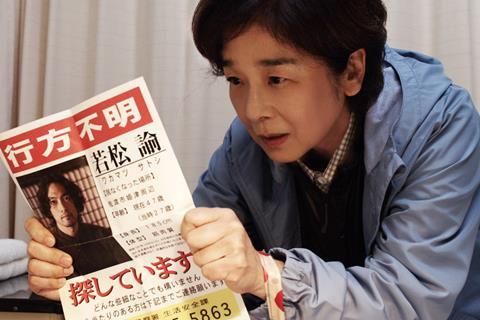Two women adjust to life after their husbands go missing in Japanese director Nao Kubota’s return to the big screen

Dir: Nao Kubota. Japan. 2022. 126mins
Eight years after making a belated big-screen debut at the Berlinale with the Fukushima-themed drama Homeland, prolific documentary-oriented Japanese TV-director Nao Kubota returns to the feature-film world with Thousand And One Nights. Almost entirely shot and set on the idyllic-looking island of Sado, located in the Sea of Japan not far from Niigata, this is a gently-paced character-study of two women brought together by their shared experience of husbands who have gone missing.
Ruminative and reflective, with moments of unassuming poetry and persuasive performances, the film works best as a kind of sustained mood-piece
Very squarely aimed at mature audiences, it bows in Busan’s New Currents section and could find some favour at mainstream-oriented festivals in the months ahead. Kubota’s connections with Palme d’Or winner Hirokazu Kore-eda — his frequent collaborator Yutaka Yamazaki takes on cinematography duties here — may also open doors for a well-intentioned, professionally-handled affair.
The picturesque setting is a consistent plus, even if it is presented in functional rather than stimulating style by DoP Yamazaki. Seldom in the headlines, Sado was the site of a suspected dual abduction of Japanese citizens by representatives of the North Korean government back in 1978. Such abductions, never directly addressed in Kenji Aoki’s screenplay (he also wrote Homeland, and has since worked exclusively in TV), lurk as a background element here: there is occasional talk of “unidentified boats” and other mysterious vessels being spotted out at sea.
The main focus, however, is neither on the disappearances nor their possible explanations, but their effect on those left behind: middle-aged fish-filleter Tomiko Wakamatsu (Yuko Tanaka), whose emotional life has been pretty much on hold since her spouse Satoshi vanished three decades previously; and mid-30s nurse Nami Tamura (Machiko Ono), who is of partially Korean ancestry, and whose husband Yoji (Masanobu Ando) never returned after popping out for a walk two years ago.
Kubota and Aoki concentrate on these two women both childless, sometimes separately and sometimes together, sketching in the wider community via a vivid gallery of oldsters - Sado seems to have a very geriatric demographic.
Prominent among the locals is genially drunken fisherman Haruo (played by mono-monikered performer “Dankan”), whose romantic overtures towards Tomiko are politely but forcefully (and amusingly) rebuffed. Taken in toto, Thousand And One Nights — its title a nod to the famous fortitude and fertile imagination of legendary taleteller Scheherezade — suggests that men are at best unreliable and non-dependable, and that women must rely on their own inner qualities to get by.
Ruminative and reflective, with moments of unassuming poetry and persuasive performances, the film works best as a kind of sustained mood-piece — although even on such terms it struggles to fill out its lengthy running-time. Yasuaki Shimizu’s busy score deploys smoky-jazzy horns and tinkling piano to evoke a classy, mournful vibe, in thoroughly conventional style: there are spells where it even sounds like a temp-track. Kubota’s occasional attempts at an impressionistic flourish via flashback and/or dream-sequence yield even slimmer dividends.
Production company: Bitters End, Inc.
International sales: Bitters End, Inc., international@bitters.co.jp
Producer: Yuji Sadai
Screenplay: Kenji Aoki
Cinematography: Yutaka Yamazaki
Music: Yasuaki Shimizu
Main cast: Yuko Tanaka, Machiko Ono, “Dankan,” Masanobu Ando















![[L-R]: Amanda Villavieja, Laia Casanovas, Yasmina Praderas](https://d1nslcd7m2225b.cloudfront.net/Pictures/274x183/6/4/1/1471641_pxl_20251224_103354743_618426_crop.jpg)








